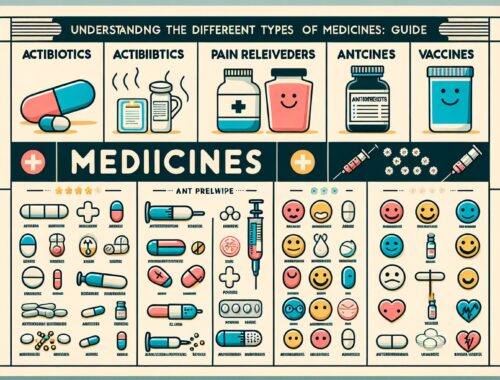
The Different Types of Medicines
Medicines are substances that are used to treat, prevent, or alleviate symptoms of various medical conditions. They play a crucial role in improving our health and well-being. With a myriad of available options, it can be overwhelming to understand the different types of medicines and their uses. In this article, we will explore the main categories of medicine and their functions.
Introduction to Medicines
Medicines can be broadly categorized into four main types: prescription medicines, over-the-counter (OTC) medicines, complementary and alternative medicines (CAM), and herbal remedies.
1. Prescription Medicines
Prescription medicines are medications that can only be obtained with a written prescription from a licensed healthcare professional, such as a doctor or nurse practitioner. These medicines are regulated by governmental bodies to ensure their safety and efficacy. Prescription medicines are often used to treat complex or severe medical conditions, requiring careful monitoring and dosage adjustments. Examples include antibiotics, antidepressants, and chemotherapy drugs.
2. Over-the-Counter (OTC) Medicines
OTC medicines are available for purchase directly from pharmacies, supermarkets, or online stores without a prescription. They are intended to treat common, self-diagnosed ailments and symptoms. Common examples of OTC medicines include pain relievers, cough suppressants, antacids, and allergy medications. While generally safe, it is essential to read and follow the instructions carefully, as incorrect use can lead to adverse effects.
3. Complementary and Alternative Medicines (CAM)
Complementary and Alternative Medicines (CAM) encompass a wide range of therapeutic practices, products, and systems that are not considered part of mainstream medicine. These medicines are often used alongside conventional treatments to promote holistic health and well-being. Common examples of CAM include acupuncture, aromatherapy, homeopathy, and naturopathy. While some CAM therapies have scientific evidence supporting their efficacy, others may lack reliable research, emphasizing the importance of consulting with healthcare professionals.
4. Herbal Remedies
Herbal remedies, also known as herbal or botanical medicines, are derived from plants and plant extracts. They have been used for centuries to prevent and treat various ailments. Herbal remedies are available in various forms, including teas, capsules, tinctures, and creams. Examples of widely used herbal remedies include echinacea for immune support, St. John’s wort for depression, and ginger for nausea. However, it is crucial to exercise caution, as herbal remedies may interact with prescribed medications or have unintended side effects.
Conclusion
Understanding the different types of medicines is vital for responsible and effective healthcare management. Prescription medicines should be taken under the supervision of a healthcare professional, while OTC medicines provide accessible solutions to common ailments. CAM therapies offer alternative approaches to conventional medicine, often used in conjunction with traditional treatments. Herbal remedies, with their natural origins, can provide potential benefits but should be used with awareness of possible interactions or side effects.
Always consult with a healthcare professional before starting any medication or treatment to ensure it is suitable for your specific needs and medical history. Remember, the goal of medicines is to improve your health and well-being, so use them wisely and responsibly.
You May Also Like

Understanding the Different Types of Medicines: A Guide
January 8, 2024
A Guide to the Different Types of Medicines
January 11, 2024

